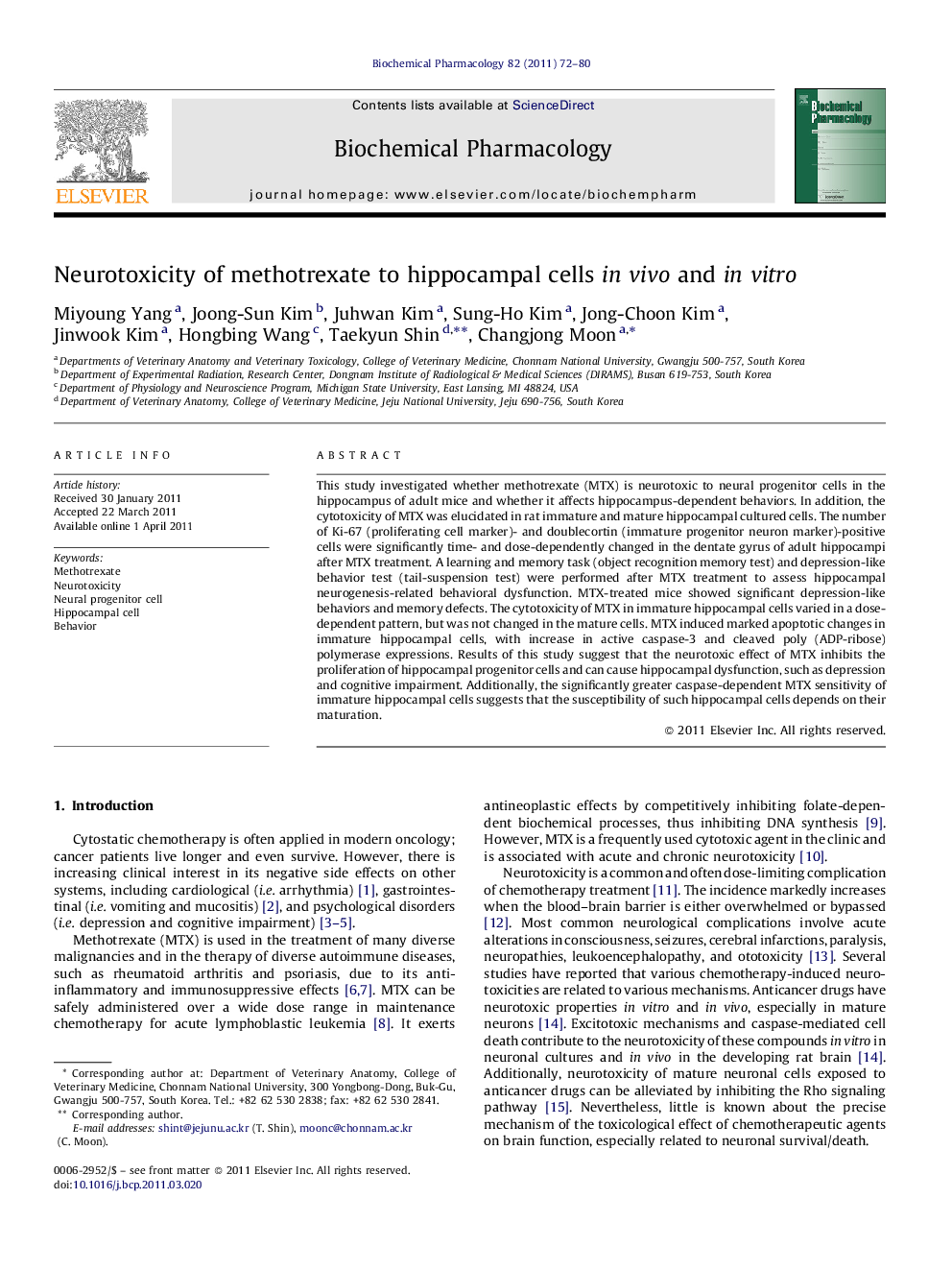| Article ID | Journal | Published Year | Pages | File Type |
|---|---|---|---|---|
| 2513285 | Biochemical Pharmacology | 2011 | 9 Pages |
This study investigated whether methotrexate (MTX) is neurotoxic to neural progenitor cells in the hippocampus of adult mice and whether it affects hippocampus-dependent behaviors. In addition, the cytotoxicity of MTX was elucidated in rat immature and mature hippocampal cultured cells. The number of Ki-67 (proliferating cell marker)- and doublecortin (immature progenitor neuron marker)-positive cells were significantly time- and dose-dependently changed in the dentate gyrus of adult hippocampi after MTX treatment. A learning and memory task (object recognition memory test) and depression-like behavior test (tail-suspension test) were performed after MTX treatment to assess hippocampal neurogenesis-related behavioral dysfunction. MTX-treated mice showed significant depression-like behaviors and memory defects. The cytotoxicity of MTX in immature hippocampal cells varied in a dose-dependent pattern, but was not changed in the mature cells. MTX induced marked apoptotic changes in immature hippocampal cells, with increase in active caspase-3 and cleaved poly (ADP-ribose) polymerase expressions. Results of this study suggest that the neurotoxic effect of MTX inhibits the proliferation of hippocampal progenitor cells and can cause hippocampal dysfunction, such as depression and cognitive impairment. Additionally, the significantly greater caspase-dependent MTX sensitivity of immature hippocampal cells suggests that the susceptibility of such hippocampal cells depends on their maturation.
Graphical abstractFigure optionsDownload full-size imageDownload as PowerPoint slide
